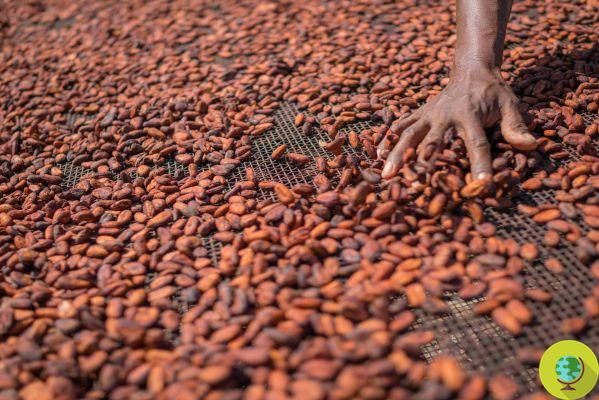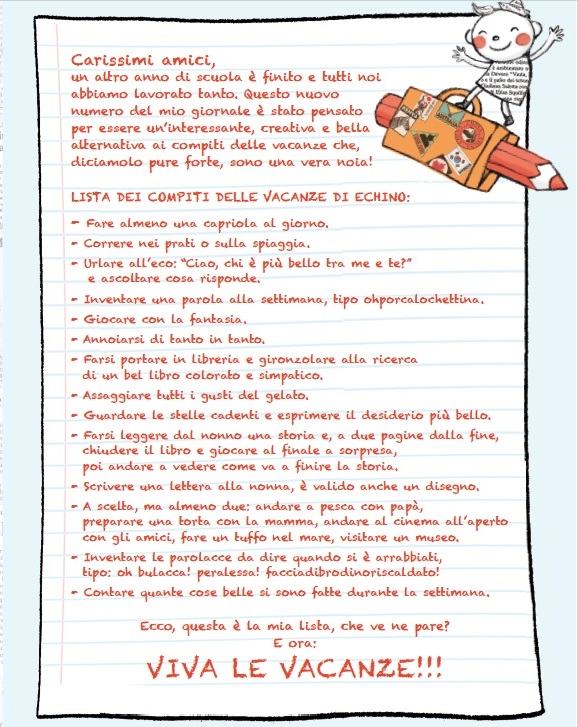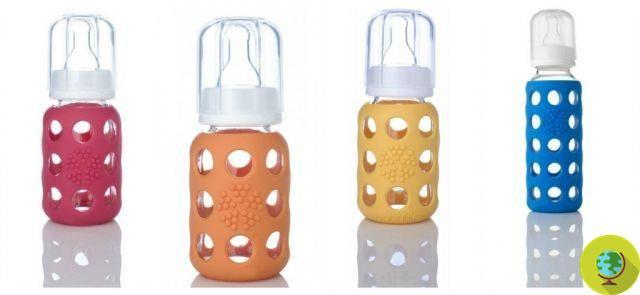
Artificial milk, powdered or formulated milk, if you prefer. An indispensable alternative to feed the little ones in cases where breast milk is not available. However, the interests and conflicts of interest that revolve around this product are many and this time an investigation by the British Medical Journal has come to focus on the subject.
Don't store avocado like this: it's dangerous
Artificial milk, powdered or formulated milk if you prefer. An indispensable alternative to feed the little ones in cases where breast milk is not available. However, the interests and conflicts of interest that revolve around this product are many and this time the attention has come to focus on the subject an investigation by the British Medical Journal.
In this case we talk about how the companies that produce and market formulated milk are taking advantage of the allergy to cow's milk proteins which seems to be increasingly widespread, particularly in the United Kingdom where it has reached really exaggerated (and therefore suspicious) levels.
In the article, published precisely in the well-known British Medical Journal (BMJ), we read a very clear accusation made by the doctor Chris van Tulleken:
"Baby milk companies use cow's milk protein allergy as a 'Trojan horse' to forge dangerous relationships with doctors and pediatric professionals."
It all started by analyzing the shocking data relating to this allergy which led, from 2006 to 2016 in the UK, to an increase in prescriptions of special formulated milk for allergic children by 500%! This means that it has gone from around 100 prescriptions a year to over 600. Particularly alarming data were it not that, according to van Tulleken, these would be overestimated. The doctor in fact hypothesized that these would be prescriptions due to overdiagnosis, therefore not to a real increase in allergies but linked in some way to the food industry.
It must be said, among other things, that the allergy to cow's milk proteins does not always show clear and immediately understandable symptoms. In some cases, in fact, the diagnosis is made after gradually excluding the foods that contain these proteins. Sometimes very vague symptoms appear such as diarrhea, constipation, irritability, bloating, rashes, etc. all things that could be attributable to other reasons.
But if we are dealing with infants, or children who are still taking milk, what do we tend to do? Special formulas without proteins deriving from cow's milk or which have a very small quantity are used. And this is where, according to the BMJ investigation, the conflict of interest with the powdered milk industry would come in, which would exploit the situation to sell more packages of its special milk, involving pediatricians in this operation as well. Not in all cases, in fact, switching to these solutions is really necessary.
Dr. van Tulleken then reminds us of the importance of following guidelines that are based on scientific data regarding cow's milk allergy. However, the doctor points the finger at the best known ones, both national in the United Kingdom and internationally, given that they were made by a series of authors who have declared that they have conflicts of interest with producers of formulated milk before or after the drafting of the documents. These are, for example, those of Nice, the United Kingdom Institute for Clinical Excellence, and those of Espghan, the European Society of Pediatric Gastroenterology, Hepatology and Nutrition, the British Map and the international IMap.
In short, the situation is very complex and as we always remember, breastfeeding should be favored in all ways (very rare cases in this is not possible if the mother is well looked after by specialized personnel), thus avoiding having to resort to formulas. which, among other things, are always at the center of media attention also for scandals involving contamination.
About this see also:
- Artificial milk contaminated by 3-MCPD (LE MARCHE)
- Artificial milk contaminated by bacteria: here are the lots withdrawn
- Nestlé withdraws Alfamino infant formula: it can cause nausea and vomiting
On the issue of conflict of interest, read also:
- How profitable formula milk campaigns are discouraging breastfeeding around the world


























